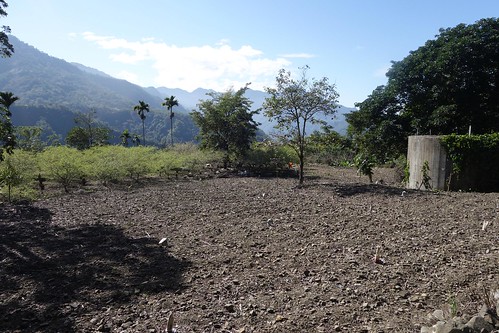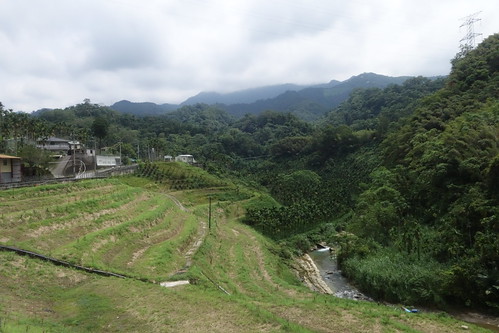Bloomberg ran a story this week on Taiwanese businessmen who had been speculating in Yuan derivatives and got burned when the Chinese economy slumped. So many years of articles explaining that derivatives are a bad idea, and people are still buying them. But the loss was like a metaphor for dealing with China: initial gains, followed by steep costs...
Time again for this blog's regularly irregular feature, Paper on Parade. A friend flipped me this article on Taiwanese businessmen in China: Yi-Wen Yu, Ko-Chia Yu and Tse-Chun Lin (2016): Political Economy of Cross Strait Relations: is Beijing’s patronage policy on Taiwanese business sustainable?, Journal of Contemporary China, Feb 2016. It discusses the failure of Beijing's policies for Taiwanese business and to use business as a pathway to annexing Taiwan, a failure thrown into stark relief by the refusal of Taiwanese businessmen in China to come home to vote for the pro-China party. The authors write:
Via quantitative analysis and interviews, this article has found that things have been moving in a different direction: the rise of economic nationalism and local protectionism is undermining and constraining the credibility and sustainability of Beijing’s patronage policy. The new story is that with the growth of Chinese state-owned enterprises (SOE) and local private firms, Taiwanese businesses are being crowded out of China’s market. As a result, cross-Strait economic integration seems to have entered a period of stasis with regard to both direct investment and trade. Meanwhile, with the growth of nationalism, opposition to the patronage policy from China’s hawks and society has been emerging. Lastly, Taiwanese business, as a strategic linkage community targeted by Beijing, is losing its clout on both sides of the Strait, as well as its role as leverage in cross-Strait relations.The article reviews two basic models of the Cross-Strait dynamic, and shows that both assume that Beijing has absolute control over its own domestic actions. They then point out three assumptions that many of us have attempted to refute over the years, especially the inevitability thesis:
In summary, most of the existing literature is based on three assumptions: firstly, domestic constraint on Beijing’s Taiwan policy is limited or meaningless; secondly, the growing economic integration is inevitable; and thirdly, Taiwanese business groups could be a leverage in cross-Strait relations.What are the domestic constraints?
since the rise of economic nationalism and local protectionism in mainland China, local governments and economic departments have selectively ignored Beijing’s political patronage policy towards Taiwanese business and turned to favor SOEs and local firms. As a result, Taiwanese business has been crowded out of the Chinese market.The article points out that economic nationalism in China has made it difficult to sell the idea of economic privileges for Taiwanese to Chinese actors. The authors also observe that the same process is happening in Taiwan -- the cooperation between Taiwanese big business and the CCP has been met with economic nationalist resistance in Taiwan, and Big Businessmen were unable to create a victory for the KMT in 2014 (and as we have seen, in 2016). Parallel domestic constraints affect both Chinese expansionist parties in their respective domains.
This same protectionism is occurring at the local level in China. In the 1990s Taiwanese businessmen were courted and could get tax breaks, land, and favors from local governments. But that "golden age" is long gone. Local governments now favor local state owned enterprises and local businesses over Taiwanese.
This development is important, because it swamped the effects of Ma Ying-jeou's alliance with the CCP after 2008. The authors note:
Yet, an interesting finding is that prior to the enforcement of the New Corporate Income Tax Law to all companies in 2008, Taiwan businesses’ tax payments had already been going up since 2005.14The authors compare Chinese firms, SOEs, and Taiwanese firms by subsidies, taxes, and performance, and the same trends are evident across all data sets: until 2002, Taiwan firms outperformed local firms and SOEs. By 2007, Taiwan firms were only outperforming SOEs. The article collects data from several sources, and summarizes:
This finding coincides with the story that the authors learned from respondents: the golden age of Taiwanese businesses in mainland China began to fade at the very beginning of this century because of China’s industry policy (腾笼换鸟政策) and local protectionist sentiment.
Due to limits of the database, this article only can do panel data analysis until 2009. To trace TDI’s performance in the following years, this article employs China Credit Information Service, Ltd’s ‘Annual Report of Taiwan Business 2012, 2013 and 2014’.18 The reports indicate that the performance of Taiwanese businesses in mainland China has been going down, consistent with the trend presented in the panel data analysis above. They reveal that 649 Taiwanese listed companies (their investment in China) saw their profits plunge by 22.72% in 2012 compared to 2011. Moreover, 40.5% of non-listed companies were running a deficit on their investment in the mainland. In the 2013 report, the editor uses ‘The collapse of Taiwanese business in China’ to describe the tough situation: 55% of Taiwanese listed companies in mainland China had a deficit; over 70% of small–medium size Taiwanese companies in the mainland had losses. In 2014, over 60% of listed companies had losses in the Chinese market. Such lasting deficits in the Chinese market have led many Taiwanese businesses to shut down, shrink or relocate their investment to other countries. According to a report by the Chung-Hua Institution for Economic Research,19 over 60% of Taiwanese businesses had no plans to inject new investment into mainland China during 2011–2015 (the duration of China’s 12th Five-Year Plan).The rise of Chinese business has meant that the old pattern of Taiwanese firms importing intermediate goods into China for final assembly is dead: the business model has shifted from vertical integration of Chinese firms in Taiwanese supply chains to direct competition, because China has introduced policies to cause this shift, and its SOEs have been reformed. The authors write:
Meanwhile, the growth of cross-Strait trade also has been slowing down. Figure 6 shows that the contribution rate (to Taiwan’s GDP) of exports to China has seen a dramatic drop during 2011–2013 compared to 2003–2007.Yes, that's right -- after ECFA, exports to China had dramatically less effect on Taiwan's GDP even as cross-strait trade allegedly increased. And if your businesses are contributing less to GDP, you have less political clout. It's no wonder most Taiwanese businessmen in China stayed there this election.
In China the Taiwan Affairs Office (TAO) coordinates the policies under which Taiwanese businessmen are supposed to get patronage, but in reality its power is weak and it can do little against regional and local government preferences for new investors, local businesses, and local SOEs. Taiwanese businessmen can do little to compete with these alliances. The authors review local discussion forums and collect remarks on the patronage policy towards Taiwan businesses. They are critical and negative for the most part, and the policies are not popular.
The paper then turns to discussing what many of us have observed over the years: big businesses invested in China helped the KMT in the 2008-2012 election cycle, but since then the public has turned against these economic arrangements, seeing the KMT's China policy as a sellout of the island that helps only big business. As a result, "Beijing is now reviewing its patronage policy and alliance with Taiwanese business, as one respondent, a Chinese expert in Taiwan affairs, said."
In addition to competition and favoritism, Taiwanese businesses are finding it difficult to operate for other reasons:
‘The Observation of Taiwanese Business’s Human Rights in China’ indicates that in most cases of conflicts between Taiwan businesses and local firms, Chinese local governments and judiciary favor local firms significantly. Even worse, local governments have begun infringing on Taiwanese business’s property. As Taiwan businesses entered the mainland at a very early stage, with this advantage they were able to locate their factories in prime real estate areas within cities at that time. With rising land prices, in order to gain profit from reselling the land, local governments frequently force the relocation of Taiwanese businesses occupying these prime locations without reasonable compensation.The TAO can do little, of course.
The authors conclude with a series of questions that boil down to: what will the future bring? As the 2016 elections show, Taiwanese reject annexation to China and reject economic integration, which is not, in any case, under favorable terms. The Taiwanese have always seen economic engagement with China as a straightforward exchange to receive economic benefits, to be terminated when benefits no longer flowed. Now they are finished flowing.
How will Beijing respond?
The CCP is not the only Chinese political party that this changing economic situation has impacted. This article confirms that the KMT's policy of selling Taiwan to China via economic integration has no political future. Without this economic foundation, the KMT's entire China policy has become, like the ROC itself, a zombie waiting for a bullet to the head.
What will the KMT do?
_______________________
[Taiwan] Don't miss the comments below! And check out my blog and its sidebars for events, links to previous posts and picture posts, and scores of links to other Taiwan blogs and forums!





